Dandruff, the pesky flaking of the scalp that plagues millions worldwide, can be both embarrassing and uncomfortable. While the shelves of drugstores are lined with countless anti-dandruff shampoos and treatments, many people are turning to natural remedies for relief.
From essential oils to dietary changes, these solutions offer a holistic approach to scalp health. But before we dive into the remedies, let’s first understand how we ensure the quality and efficacy of the information we’re presenting.
How we vet brands and products?
At the heart of our recommendations lies a rigorous vetting process. We understand that not all natural remedies are created equal, and what works for one person may not work for another.
Our team of experts, including dermatologists, trichologists, and natural health practitioners, meticulously review each remedy. We pore over scientific studies, clinical trials, and peer-reviewed research to ensure that our recommendations are grounded in solid evidence.
Read More: The Causes Of White Hair And Easy Ways To Prevent It Naturally
1. Tea Tree Oil
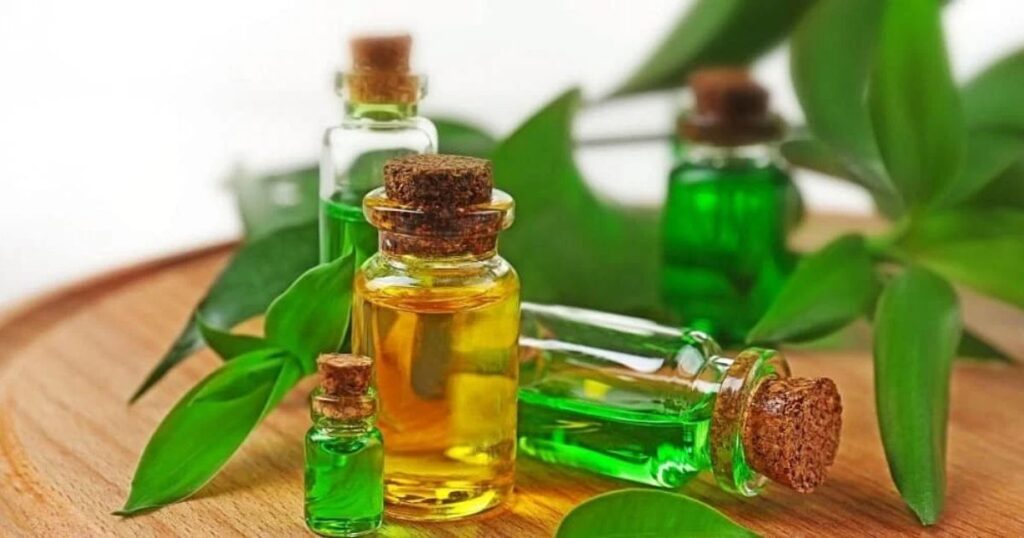
Tea tree oil, derived from the leaves of the Melaleuca alternifolia tree, has long been heralded for its potent antifungal and antibacterial properties. These qualities make it a formidable opponent against the fungi often responsible for dandruff.
To harness the power of tea tree oil, mix a few drops with a carrier oil like coconut or jojoba. Gently massage this mixture into your scalp and leave it on for 15-20 minutes before washing it out. For a more convenient option, look for shampoos that contain tea tree oil as an active ingredient.
How to use:
- Mix with carrier oil (coconut or jojoba)
- Massage into scalp, leave for 15-20 minutes
- Rinse out
Alternative: Use shampoos containing tea tree oil
Caution: Perform patch test to check for allergic reactions
2. Lemongrass Oil
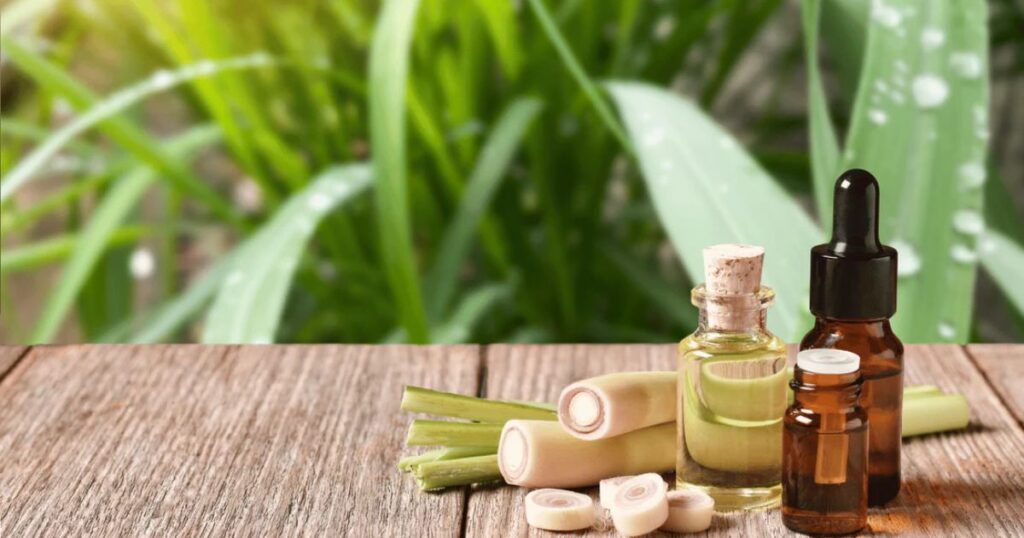
Lemongrass oil, with its fresh, citrusy scent, is more than just a pleasant aroma. This essential oil packs a powerful punch against dandruff, thanks to its antifungal and anti-inflammatory properties.
To use lemongrass oil for dandruff relief, add a few drops to your regular shampoo or conditioner. Alternatively, mix it with a carrier oil and apply it directly to your scalp as a pre-wash treatment. Leave it on for 10-15 minutes before rinsing thoroughly.
The invigorating scent of lemongrass can also help reduce stress, which is often linked to dandruff flare-ups. As with any essential oil, it’s crucial to dilute lemongrass oil before applying it to your skin.
3. Aloe Vera Gel
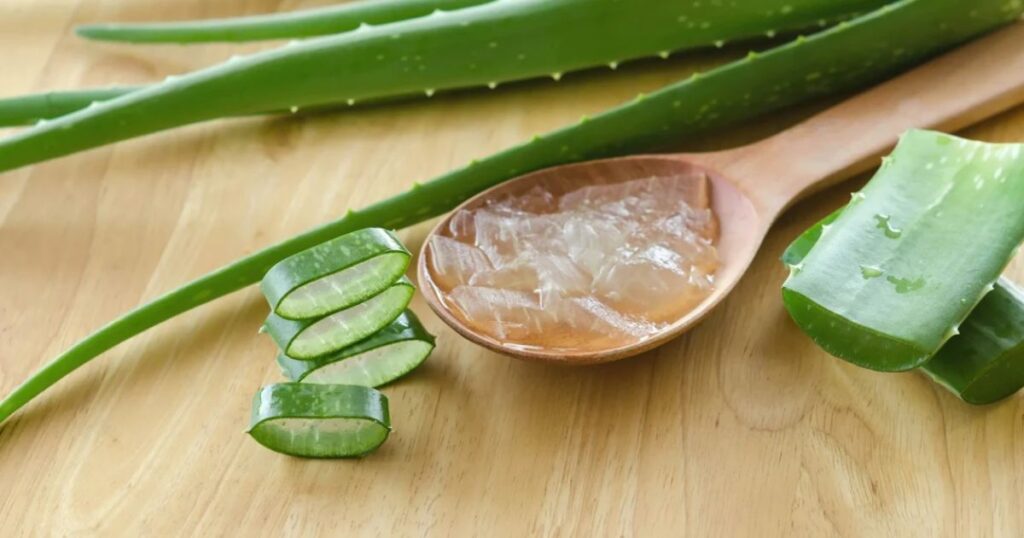
Aloe vera, often hailed as a wonder plant in the world of natural remedies, offers a soothing solution for dandruff-prone scalps. The gel found inside aloe vera leaves is rich in compounds with anti-inflammatory, antibacterial, and antifungal properties.
These qualities make it an excellent natural treatment for dandruff and other scalp conditions. Applying pure aloe vera gel directly to your scalp can help reduce inflammation, soothe itchiness, and promote overall scalp health.
Massage the gel into your scalp and leave it on for 30 minutes to an hour before rinsing. For an extra boost, mix aloe vera gel with a few drops of tea tree or lemongrass oil. This potent combination can be particularly effective against stubborn dandruff.
4. Omega-3 Fatty Acids
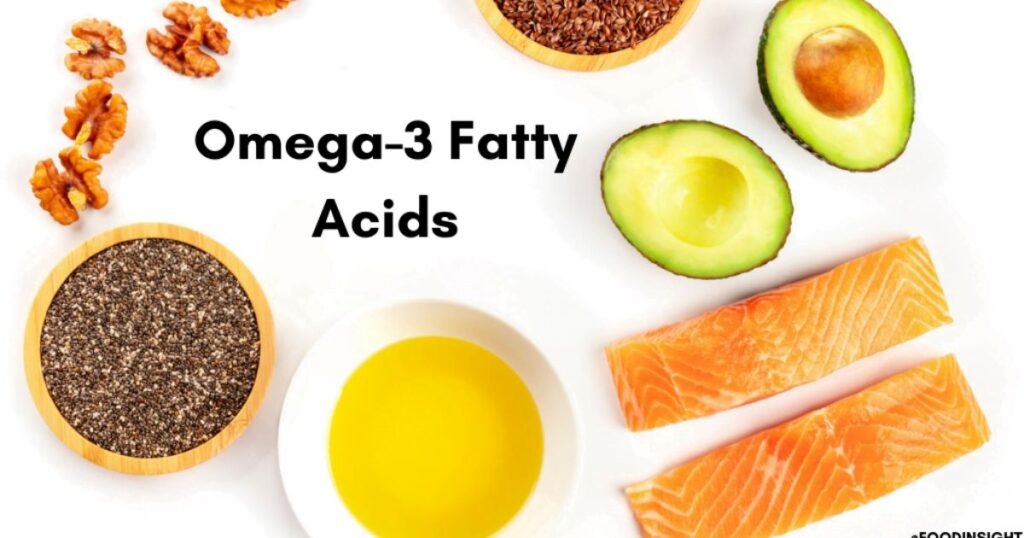
While most dandruff treatments focus on topical applications, addressing the issue from the inside out can be equally effective. Enter omega-3 fatty acids – essential fats that play a crucial role in reducing inflammation throughout the body, including the scalp. These healthy fats also help maintain skin hydration, which can prevent the dryness and flaking associated with dandruff.
Increasing your intake of omega-3s can be as simple as incorporating more fatty fish like salmon, mackerel, and sardines into your diet. For vegetarians and vegans, good sources include flaxseeds, chia seeds, and walnuts.
Benefits: Reduces inflammation, maintains skin hydration
Dietary sources:
- Fatty fish (salmon, mackerel, sardines)
- Plant-based: flaxseeds, chia seeds, walnuts
Alternative: High-quality fish oil or algae-based supplements
5. Aspirin
It might seem surprising to find a common painkiller on a list of dandruff remedies, but aspirin has a secret weapon in the fight against flakes – salicylic acid. This compound, which is also found in many anti-dandruff shampoos, helps to exfoliate the scalp, removing dead skin cells and reducing flaking.
To use aspirin as a dandruff treatment, crush two or three uncoated aspirin tablets into a fine powder and mix it with your regular shampoo. Apply this mixture to your wet hair and scalp, massage gently, and leave it on for a few minutes before rinsing thoroughly.
6. Baking Soda
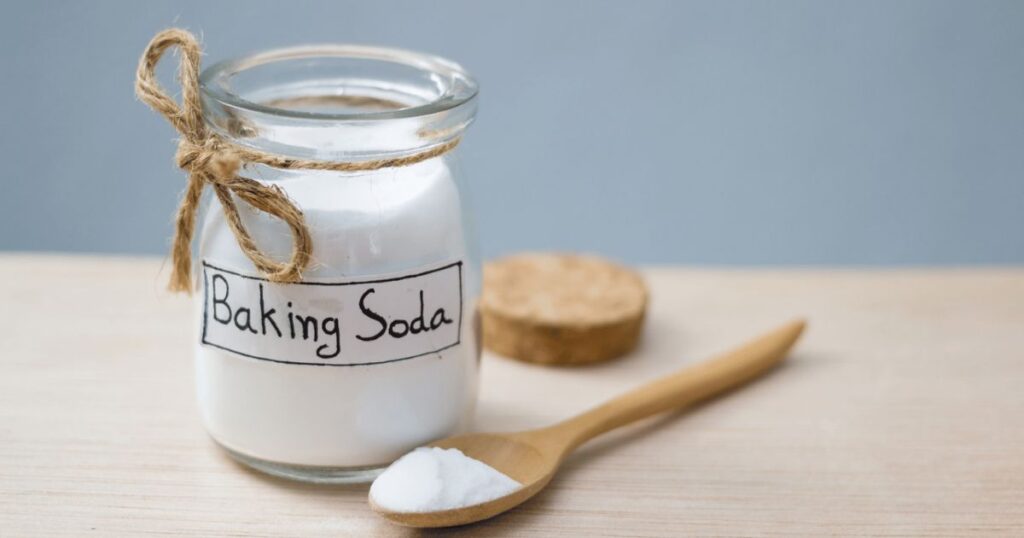
Baking soda, a staple in many kitchens, doubles as an effective natural remedy for dandruff. This versatile compound works in two ways to combat flakes. Firstly, its mild exfoliating properties help to remove dead skin cells and excess oil from the scalp, which can contribute to dandruff.
Secondly, baking soda has antifungal properties that can help keep the yeast-like fungi associated with dandruff in check. To use baking soda as a dandruff treatment, wet your hair and then rub a handful of baking soda vigorously into your scalp.
Let it sit for a minute or two before rinsing thoroughly. Some people use this method in place of shampoo, finding that their scalp adjusts after a few washes, leading to less oil production and reduced dandruff.
7. Zinc
Zinc, an essential mineral involved in many bodily functions, plays a crucial role in maintaining healthy skin – including the skin on your scalp. Some studies have suggested that zinc deficiency may contribute to dandruff, and that increasing zinc intake can help reduce dandruff symptoms.
Increasing your zinc intake can be achieved through diet or supplements. Foods rich in zinc include oysters, beef, pumpkin seeds, and lentils. If you’re considering zinc supplements, it’s crucial to consult with a healthcare professional first, as excessive zinc intake can have negative health effects.
8. Coconut Oil
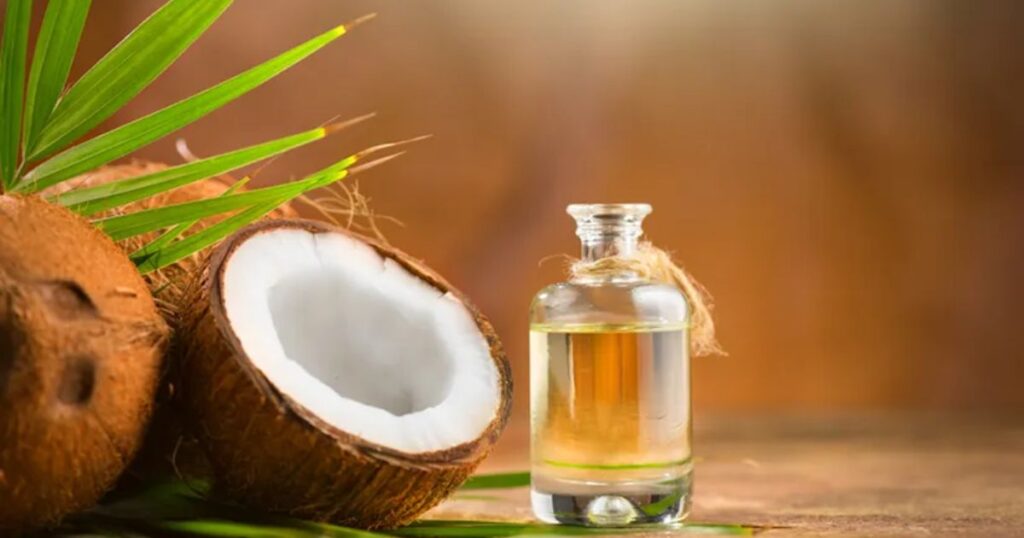
Coconut oil, a versatile natural product, has been a staple in hair care routines for centuries, particularly in tropical regions. Its effectiveness against dandruff stems from its moisturizing properties and natural antifungal components. To use coconut oil for dandruff treatment, warm a small amount of oil in your hands and massage it gently into your scalp.
For best results, leave it on for at least an hour, or even overnight if possible, before washing it out with shampoo. This allows the oil to penetrate deeply into the scalp, providing intense moisturization and nourishment. Repeat this treatment a few times a week for optimal results.
How to use:
- Warm oil, massage into scalp
- Leave for at least an hour or overnight
- Wash out with shampoo
Frequency: Few times a week
9. Dietary Changes
While topical treatments can provide relief from dandruff symptoms, addressing the issue from the inside out through dietary changes can lead to long-term improvements in scalp health.
A diet rich in vitamins and minerals, particularly B vitamins, zinc, and omega-3 fatty acids, can help support healthy skin and potentially reduce dandruff. Start by incorporating more fruits, vegetables, whole grains, and lean proteins into your diet.
Foods rich in probiotics, like yogurt and kefir, may also be beneficial as they support a healthy balance of microorganisms in your body. Some people report improvements in their dandruff when they reduce their intake of sugary foods, dairy products, or foods high in saturated fats.
Read More: Kelly Ann Cicalese Weight Loss Journey: Proven Diet Tips You Need to Know!
10. Reduce Stress

While stress doesn’t directly cause dandruff, it can exacerbate symptoms and make existing dandruff worse. Stress can weaken your immune system, making it harder for your body to fight off the fungal overgrowth that often leads to dandruff.
To reduce stress and potentially improve your dandruff symptoms, try incorporating stress-management techniques into your daily routine. This could include practices like meditation, yoga, deep breathing exercises, or regular physical exercise.
Frequently Asked Questions
What is dandruff?
Dandruff is flaky, itchy skin on your scalp. It can be embarrassing and uncomfortable.
Why use natural remedies for dandruff?
Natural remedies are often cheaper and have fewer side effects than medicated shampoos. They can be gentle on your scalp and hair.
What’s a common natural remedy for dandruff?
Tea tree oil is popular for fighting dandruff. It has antifungal properties that can help reduce flaking and itching.
How can diet affect dandruff?
Eating a balanced diet with enough vitamins and minerals can improve scalp health. Omega-3 fatty acids and zinc may help reduce dandruff.
Are natural remedies as effective as medicated treatments?
Some natural remedies work well for mild dandruff. For severe cases, you might need stronger, medicated products or to see a doctor.
Conclusion
In conclusion, these natural remedies offer a holistic approach to combating dandruff. From essential oils to dietary changes and stress reduction techniques, there are numerous ways to address this common scalp condition without resorting to harsh chemicals.
You may need to experiment with different remedies or combinations to find what works best for your scalp. If your dandruff persists or is accompanied by severe itching, redness, or inflammation, it’s advisable to consult a dermatologist. These symptoms could indicate a more serious scalp condition that requires professional treatment.

